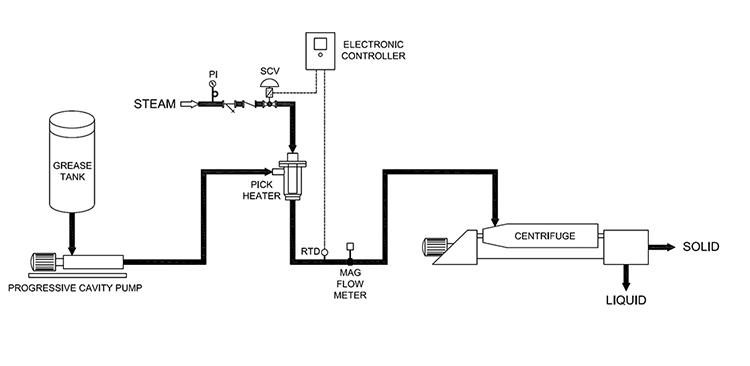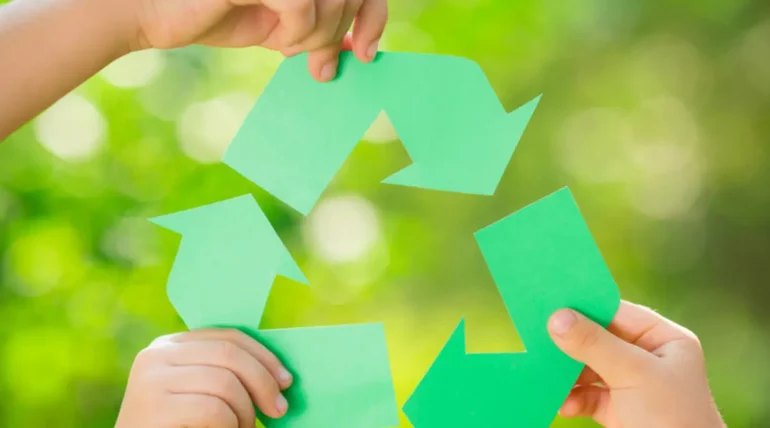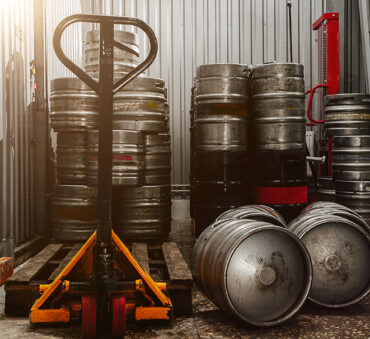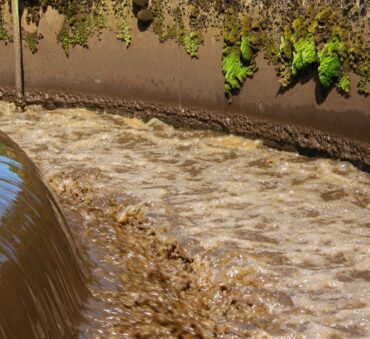Grease recycling is one of the most overlooked facets of waste management.
But in a world increasingly conscious of its ecological footprint, grease recycling emerges not just as a choice but as a necessity too.
Recycling grease also comes with a set of benefits.
Let’s dive into the concept of grease recycling, why it needs to be done, how to recycle grease, and more.
Key Takeaways
- Proper grease recycling safeguards ecosystems, preventing water pollution and reducing waste-related hazards.
- Businesses can save costs through efficient grease recycling methods, turning waste into valuable resources.
- Recycling grease contributes to biofuel, animal feed, and industrial product production, minimizing reliance on non-renewable resources.
- Responsible grease disposal prevents sewer blockages and overflows, reducing overall maintenance costs.
What Type of Waste is Grease?
Grease is a type of hazardous liquid waste. It is a semi-solid residue left behind after cooking or processing fats, oils, and animal products.
This waste can be classified into 3 different types based on its source:
- Cooking grease: Generated in homes, restaurants, and food service establishments, this type of grease includes fats, cooking oils, and greasy food waste residues like disposable bacon grease.
- Industrial grease: Industries like food processing, manufacturing, and hospitality produce a significant amount of grease waste as a byproduct of their operations.
- Trap grease: Grease interceptors or traps in plumbing systems capture and accumulate grease from kitchen wastewater, preventing it from entering sewage systems and causing blockages.
Why is Grease a Problem?
Improper disposal of grease poses significant environmental challenges. For example, when grease is poured down sinks or flushed down drains, it enters wastewater systems.
Why is this a problem?
Grease solidifies and accumulates in pipes, causing blockages that disrupt sewage flow and lead to overflows. These overflows can:
- Contaminate water bodies
- Harm aquatic life
- Affect water quality
Additionally, when grease enters sewage treatment facilities, it can interfere with the wastewater sludge treatment process. Grease can form a scum layer on the surface of treatment tanks, reducing their efficiency and increasing maintenance costs.
These are a few of the complications that grease mismanagement can lead to. So, what is the grease recycling process businesses can follow to mitigate these problems?
How is Grease Recycled?
The grease recycling process consists of several important steps that help transform used grease into valuable resources. These include:
Collection
Used grease is collected from diverse sources, including restaurants, food establishments, industrial facilities, and households. The grease is captured in specialized collection containers, which prevent it from entering wastewater systems.
After being captured, the accumulated grease is gathered by grease collection companies. These companies play a crucial role in transporting the collected grease to dedicated processing facilities. This initial step in the recycling process sets the stage for further transformation and repurposing of the used grease.
Processing
Once in the processing facility, the used grease goes through different stages, including:
- Removal of solid debris and contaminants: The collected grease is carefully treated to eliminate any solid debris, leftover food particles, and other contaminants that might have found their way into it. This step is essential to ensure that the recycled grease meets high-quality standards.
- Heating and filtering: The next step involves subjecting the grease to controlled heating and filtering processes. This helps to separate impurities, such as water and small solid particles, from the grease. The result is a much cleaner and more refined substance that is ready for the subsequent conversion process.
Conversion
Processed grease can be transformed into various valuable products that benefit both the environment and industries.
One such product is biodiesel, a renewable alternative to traditional diesel fuel. To create biodiesel, the processed grease goes through a chemical reaction called transesterification. This conversion not only reduces waste but also contributes to more sustainable energy sources.

But what is recycled grease used for?
What Happens to Recycled Grease?
Recycled grease finds new life in various valuable applications, contributing to resource optimization:
- Biofuel: Biofuel (such as biodiesel) produced from recycled grease serves as a renewable alternative to conventional diesel and can be used in vehicles and machinery. This reduces greenhouse gas emissions and lessens our dependence on fossil fuels.
- Animal feed: In some instances, recycled grease can be used as an ingredient in animal feed formulations. It provides a source of energy and nutrients for livestock and other animals, fostering a circular economy within the agricultural sector.
- Industrial lubricants and soaps: The purified components of recycled grease can be utilized in the production of industrial lubricants and soaps. These products contribute to efficient machinery operation and offer environmentally friendly alternatives to traditional formulations.
Benefits of Used Grease Recycling
Recycling grease offers a range of advantages that extend beyond waste management. For example:
- Environmental impact: Recycling used grease prevents improper disposal, which can lead to sewer blockages and soil contamination. By diverting grease from landfills and water systems, we protect ecosystems and maintain water quality.
- Economic benefits: Grease recycling presents cost-effective solutions. Businesses that embrace recycling reduce disposal costs, avoid fines related to improper disposal, and may even generate revenue from the sale of recycled grease byproducts.
- Reduction in dependence on non-renewable resources: Through the conversion of recycled grease into biodiesel and other usable products, we reduce our reliance on finite fossil fuels. This promotes sustainable practices and lessens our carbon footprint.
By recognizing and implementing proper grease recycling practices, businesses reap rewards that foster a greener future.
Conclusion
Grease recycling is a crucial but often neglected waste management practice. From addressing environmental concerns to harnessing economic benefits, recycling grease shapes a more sustainable future and comes with some benefits for your business.
Ready to transform your grease disposal management?
Discover how Shapiro‘s expert grease and food waste recycling services can enhance your environmental efforts and benefit your bottom line. Partner with us to unlock the potential of grease recycling and play your part in shaping a cleaner, greener world.
Contact us today to take the next steps.
Frequently Asked Questions
Food grease (like cooking oil) is a biodegradable liquid waste. This means it can be broken down by natural processes over time. However, improper disposal can hinder this process, leading to blockages and pollution in sewer systems and water bodies.
While grease is organic, it poses challenges for composting. Its high fat content can attract pests and create an unbalanced compost mixture. Additionally, grease doesn’t break down readily and can result in foul odors.
Improperly managed grease can be harmful. It can clog sewers, causing backups and overflows. When released into water bodies, it contributes to pollution and harms aquatic life by depleting oxygen levels.
Grease waste from cooking contains contaminants and can become toxic when not properly managed. It can carry harmful bacteria and pathogens that pose health risks to humans and animals, especially when it enters water systems. Proper grease recycling prevents these risks.
Baily Ramsey, an accomplished marketing specialist, brings a unique blend of anthropological insight and marketing finesse to the digital landscape. Specializing in educational content creation, she creates content for various industries, with a particular interest in environmental initiatives.



